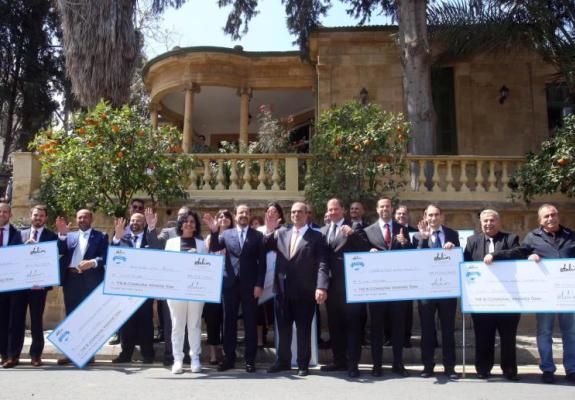Significant Progress in Organic Farming Over the Last Decade, Says M. Panayiotou
Minister Panayiotou Was Speaking at the 2nd Annual Organic Farming Festival, Held at the Old Port of Limassol.
Organic farming in Cyprus has made remarkable progress over the last ten years, stated the Minister of Agriculture, Rural Development, and Environment, Maria Panayiotou, on Saturday. She noted that from just 0.22% of the total organically cultivated land in 2003, today we have reached around 8%, surpassing the target of 7.5% that had been set for 2025.
Minister Panayiotou was speaking at the 2nd Annual Organic Farming Festival, held at the Old Port of Limassol.
"Organic product production is a cornerstone of the European Union's (EU) Green Deal. It is a sustainable food production system that contributes to farmers' efforts to combat climate change, protect the environment, and preserve biodiversity," she said.
Ms. Panayiotou emphasized that "organic production in Cyprus has made great strides over the last decade."
From 0.22% of the total organically cultivated area in 2003, she added, "we are now at around 8%, exceeding the 7.5% target we had set for 2025 in the National Organic Production Action Plan. And we continue."
All of this, she said, "is of course the result of the hard work of our organic farmers, whose number has increased from 85 individuals in 2003 to nearly 1,600 today."
As a Ministry, she mentioned, "our goal remains the practical support of our organic farmers, so that we create the conditions for organic farming to become a sustainable future for both producers and consumers."
The Minister of Agriculture went on to say that through the Strategic Plan of the Common Agricultural Policy 2023-2027, "we have set the development of organic production as one of our top priorities. Specifically, through Rural Development Interventions 1.4 'Organic Farming,' with a total budget of around €22 million, we provide incentives to support farmers, livestock breeders, and beekeepers with the exact purpose of increasing their engagement in the organic production sector."
A key tool for the European organic farmer, according to her, is the European Organic Farming Action Plan, which is one of the main pillars of the 'Farm to Fork' strategy. The Plan, she explained, encourages the transition from conventional to organic production and supports the demand for organic products in the market, ensuring consumer trust. It also aims to make organic farming and livestock breeding a model to follow.
Our goal remains the practical support of our organic farmers, so that we create the conditions for organic farming to become a sustainable future for both producers and consumers.
"Our Ministry," Ms. Panayiotou said, "following the European model of the Action Plan, has developed the National Organic Production Action Plan, which came into effect at the beginning of September 2023. This plan includes 16 targeted actions aimed at strengthening organic farming."
"Our goal is for 10% of cultivated land to be converted to organic by 2030," she said, adding that "we see this goal as achievable, thanks to the dedication and collective efforts of all involved parties."
The Minister of Agriculture noted that "organic farming is not just a passing trend, but the path we must follow to ensure a sustainable future, both for the agricultural sector and for the quality of our food."
The success of this initiative, she said, "depends on the cooperation of all stakeholders and the continued support of organic farmers." The National Organic Production Action Plan, Ms. Panayiotou said, "is our main guide and calls on all of us to actively participate."
Through this, she concluded, "we can support our producers, ensuring not only the sustainability of their operations and securing a fair and dignified income for them, but also providing consumers with safe and quality organic products."






